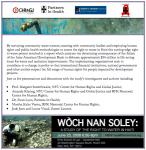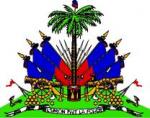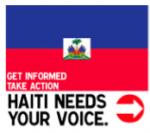 Haiti is a creative, vibrant and ultimately unique country. Nowhere is this more apparent than in the Haitian arts. The Jacmel Film Festival has proven itself to be one of Haiti's premiere cultural events, both exposing young Haitians to a new medium for and showing visitors a new side of Haiti. Even if you can't attend the Festival, you can now read the Jacmel Journals online. The website states, "Jacmel Journals are regularly updated photo and video reports produced by FFJ students...these on-line video and photo blogs further community accountability and dialogue, while providing continued on-the-job learning opportunities for aspiring documentarians and storytellers." If you like the journals, let them know and consider making a donation to support Haiti's up and coming film-makers.
Haiti is a creative, vibrant and ultimately unique country. Nowhere is this more apparent than in the Haitian arts. The Jacmel Film Festival has proven itself to be one of Haiti's premiere cultural events, both exposing young Haitians to a new medium for and showing visitors a new side of Haiti. Even if you can't attend the Festival, you can now read the Jacmel Journals online. The website states, "Jacmel Journals are regularly updated photo and video reports produced by FFJ students...these on-line video and photo blogs further community accountability and dialogue, while providing continued on-the-job learning opportunities for aspiring documentarians and storytellers." If you like the journals, let them know and consider making a donation to support Haiti's up and coming film-makers.
 In the wake of the “food riots” the details of subsidies and international aid are still being hammered out and parliament still can’t get past determining if the prime minister elect’s grandmother’s birth certificate is in order as everyday Haitians go on living.
In the wake of the “food riots” the details of subsidies and international aid are still being hammered out and parliament still can’t get past determining if the prime minister elect’s grandmother’s birth certificate is in order as everyday Haitians go on living.







